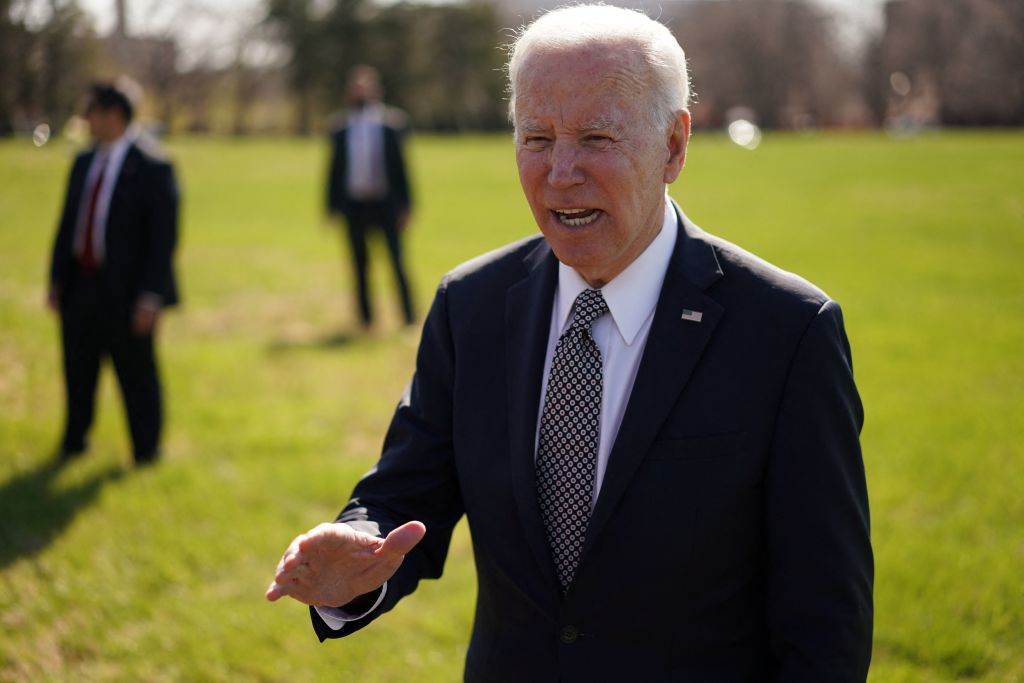The Biden administration’s debacle in Afghanistan could have been a factor that led Russian leader Vladimir Putin to invade Ukraine when he did, Chairman of the Joint Chiefs of Staff Gen. Mark Milley said Thursday.
During a Senate Armed Services Committee hearing, Republican Sen. Marsha Blackburn of Tennessee asked Milley whether the botched withdrawal was a factor in Putin’s decision-making.
“From the intelligence I’ve read, it’s not clear. I think it certainly is possible, but I also know that Putin had aims on Ukraine long before the end of the war in Afghanistan,” Milley said.
“I think we all know that,” Blackburn interjected. “So he saw his opening, right?”
Sen. Marsha Blackburn (R-TN): Did the events surrounding the US withdrawal from Afghanistan shape Putin’s decision to invade Ukraine?
Chairman @thejointstaff Mark Milley: It’s not clear based on intel… Certainly possible… Putin has been looking to invade for quite some time. pic.twitter.com/xNC63KJtvr
— Moshe Schwartz (@YWNReporter) April 7, 2022
“Well, the forces were building up — they began to build up their force in September, October,” Milley said “So I think in order to do that, they would’ve had to have the plans and approval long before September, October.”
That failure is not the only one to cast a shadow over the war. Lawmakers have also explored Pentagon errors in assessing what would entail when — after months of buildup — Russia struck.
Sen. Angus King of Maine, an independent who caucuses with Democrats, said the U.S. should have understood more about the dynamics of what the war has revealed, according to The New York Times. Initial Pentagon projections expected the war to be over within days.
“If we had known in advance how strong the Ukrainians would be and how weak the Russians would be, we might have been able to preposition more equipment and had aid to the Ukrainians flow in faster, based on the assumption they had a real chance.”
Marc E. Polymeropoulos, a former senior CIA official, said there were significant differences between the Afghan and Ukraine armies.
“I think any operations officer would have told you that the Afghan regular army did not have that will to fight on their own, if we left, and consistently would have said that over and over again,” he said.
In an Op-Ed on the Heritage Foundation’s website, James Jay Carafno said the Pentagon did not do its homework, asking “how much did the Pentagon explore the real serious stuff of military analysis and planning: what happens when what is most expected doesn’t happen? Did they prepare the contingency plans for a variety of possible scenarios?”
“From all appearances, there was little impulse to do that before the conflict. When war did break out, there seemed a reluctance to do much because the outcome was foretold. Then, as the battle lengthened, the administration proved reluctant to do more to aid Ukraine out of fear Putin would see that as escalatory,” he wrote.
“Only once it was clear Putin wasn’t winning on the battlefield, did the Pentagon acknowledge that this could be a long-protracted war, and only then did they lean forward into wanting to do more. This sure looks reacting to the course of events rather thinking ahead on how to make the most of them,” he wrote.
“Over the Obama years, we have a grown a different generation of senior of military officers who seem less prepared to deal with the hard realities of real wars and real military missions,” he wrote.
“Both Afghanistan and Ukraine have shown we have a weak commander-in-chief. Do we have weak senior military leaders to match?” he said in conclusion.
This article appeared originally on The Western Journal.

























 Continue with Google
Continue with Google